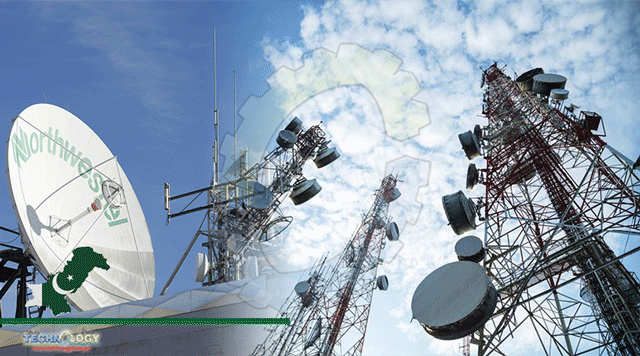IT And Telecom Industry Sought Urgent Policy Interventions Including Release Of Additional Spectrum Free Of Cost To Ease Pressure.

The IT And Telecom Industry Has Sought Urgent Policy Interventions Including The Release Of Additional Spectrum Free Of Cost To Ease Pressure On Telecom Networks To Deliver Better Quality Services And Speed Up Digital Adoption. In view of Pakistan’s poor ranking in the Economist Intelligence Unit’s recently released Inclusive Internet Index, the telecom industry has sought urgent policy interventions.
The 2021 index shows that the overall ranking of Pakistan is 90, against 89 in 2020 and 77 in 2019 out of 100 countries in the index report. It is worth mentioning that the low ranking is partially attributable to the dearth of adequate spectrum allocated to the cellular mobile service providers. GSMA’s 2020 report on Pakistan also shows that the country has assigned significantly less spectrum to the operators compared with many developed Asian markets and several neighbouring countries.
In the region, only Nepal has assigned lesser spectrum to mobile services and Pakistan’s mobile industry is one of the most spectrum deprived in the world due to higher pricing compared with the return on investment on the resource. The report highlighted that increased access to spectrum would result in enhancing the outreach of telecom services, which would generate greater tax receipts for the government, thus helping to offset the perceived loss in government receipts due to rationalisation of spectrum prices.
Talking to The Express Tribune, Jazz Chief Corporate and Regulatory Affairs Officer Syed Fakhar Ahmed said, “Compared to neighbouring countries, Pakistan has assigned significantly less spectrum to operators due to delay in spectrum awards and relatively higher base prices, hence impacting the delivery of mobile broadband.” He said that due to increased requirements of data-driven service consumption as opposed to voice, a consistent improvement in service quality was required, and hence more dynamic ways to assign spectrum were needed besides the auction model historically used in Pakistan.
“The government can also work on an alternative spectrum pricing mechanism where it can share revenue from broadband services rather than burden the operators upfront.” A senior executive of another cellular company said that lower costs would also lead to lower prices for consumers, making services more affordable. “The earlier the spectrum is released, the sooner the industry invests in it, the greater the socio-economic benefits for Pakistan,” the executive said.
Spectrum is of no value if it is sitting unallocated with the government unless the mobile industry invests in the spectrum award as well as the infrastructure and technology to deploy it. In order to invest, the mobile industry must expect to be able to earn a reasonable return on that investment, which is commensurate with the costs of both spectrum and network rollout.
“If the spectrum is held back, then it is not being used and it is not generating any benefits for society and therefore that is not an efficient use of the spectrum. Secondly, by restricting the available spectrum, the competitive dynamics of the market can be negatively affected with adverse consequences for customers such as lower quality of service and higher prices,” said the telecom official.
“Restricting spectrum increases the cost for the industry, which impacts future investment as well as enduser prices. In view of scarcity in the currently used bands of spectrum, it is also imperative that new bands, where there is more availability be also introduced, with innovative ways of assignment, so that there is diversity in options available to the operators as well as lesser costs of these lesser-used bands,” a telecom analyst shared.
In recent times, there have been several examples where governments have acted with dynamic policy interventions to award additional spectrum to ease the strain on telecom networks resulting from spectrum scarcity. To address network congestion following a surge in the use of communication services as a result of Covid-19, telecom regulatory authorities in various countries have made additional spectrum available free of charge to the network operators.
For instance, the National Communications Authority (NCA) in Ghana allocated extra spectrum to MTN and Vodafone at zero charges in order to prevent congestion and keep costs reasonable for the consumers. Similarly, the Communications and Information Technology Commission (CITC) of Saudi Arabia awarded additional spectrum free of charge to the mobile service providers to boost the performance of 4G networks and ensure uninterrupted delivery of communication and information technology services to all users and enterprises across the kingdom.
Similar measures were implemented in different countries globally including the US, South Africa, Oman, Ireland, etc. While other countries have even allocated free spectrum to address the growing data demand, in Pakistan ironically no additional spectrum has been made available after 2017 when the number of mobile subscribers was 145 million, which has now crossed the 180 million mark.
Spectrum-intensive data usage also showed exponential growth of 272% from 1,207 petabytes in 2017-18 to 4,498 petabytes in FY20. This significant increase in subscribers and data usage calls for the urgent release of additional spectrum free of charge in Pakistan to ensure the provision of quality services to customers.
This news was originally published at Tribune.